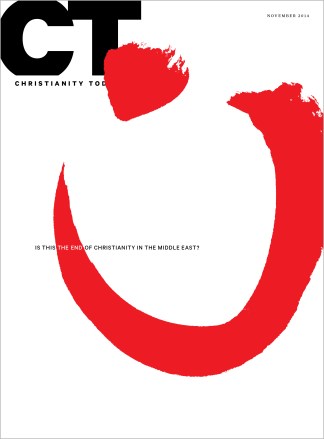Sooner or later, every Christian will have to decide what he or she thinks about the possibility of physical healing in this life. The topic is especially pressing for me. I pastor a large, charismatic church that sees dozens of people healed bodily every year, I speak at charismatic conferences regularly, and I’ve argued publicly that Christ’s gift of healing continues today.
I also have two children with regressive autism. Both children have slowly lost the ability to sing, clap, paint, and hold spoons (although my son has regained some of these skills). So far, they haven’t been healed. For me, talk of healing is not theoretical.
Polarized views on the topic abound. On one end are preachers who promise health and wealth for everyone who follows Jesus. On the other are skeptics who think most people claiming to have experienced physical healing are either lying or delusional. Even Christians who agree God heals sometimes, but not always, face confusion. Does God heal if we simply have enough faith? Should we assume sickness is a gift from God, designed to teach us about suffering, perseverance, and God’s mysterious sovereignty amid evil?
Before we can answer these types of questions, we first need to recognize healing for what it is. As I’ve studied these issues—and worked through them in my family life and church life—I’ve learned that there is more than one type of divine healing.
Type one: A virus attacks my body, and my white blood cells move into action, hunting down the perpetrator to kill it. Every second, tiny bits of mineral and organic material are sent to the parts of my body that need them, performing ongoing repairs, hour after hour, year after year. My body heals itself all the time. It’s the result of the grace of God, who created me, searches me, knows me, and loves me.
In the second type, a Jewish prophet lays his hands on blind eyes and deaf ears and causes them to see and hear instantly. A young man born deaf attends a training event with me and is healed immediately after someone prays for him in Jesus’ name. He promptly calls his fiancée with his (until now deaf) ear to the phone. They have an excitable conversation, to say the least. A woman wheelchair-bound for years is prayed for in Jesus’ name, is immediately healed, and gets out of her wheelchair. Months later, she requests her disability benefits be discontinued. The Daily Mail and the BBC pick up her story.
A third type: At age 11, I cycle into the middle of a busy street. My tibia and fibula are smashed between my bike and a VW Beetle, and a windshield wiper cuts four inches into my side, between my liver and my spleen. An ambulance arrives within minutes, and paramedics put a splint on my leg. At the hospital, my leg is reset. A surgeon removes fragments of windshield glass from my torso, and repairs the gash. After 16 weeks, I’m running around again like normal. The ambulance, the paramedics, the skill of the surgeon, the discoveries that make operating rooms and anesthesia possible—all are gracious gifts of a loving God, whose mercy enables healings to occur all over the world that most other generations would have called miraculous.
Type four, the trumpet sounds and the dead are raised in the twinkling of an eye, never to perish again. Corrupted bodies become incorruptible; sickness and affliction will never again befall them. The sterile smell of the operating room corridor is no more. Octogenarians formally bound to hospital rooms are given a new life and new youth that will never be stolen by the march of time. Every deaf ear is unblocked, every damaged limb is repaired, every blind eye sees. Autism, Down syndrome, schizophrenia, and Alzheimer’s disease are swallowed up in victory. And the last enemy to be destroyed is death (1 Cor. 15:26). Nobody cries, except with joy.
God never says no to a request for healing. He either says ‘Yes’ or ‘Not yet.’
Recognizing these types of healing can help us with the questions we so often ask. Why doesn’t God always heal? He does, eventually. Does God always heal us if we are certain he will? Not necessarily. Why not? The effects of Christ’s victory over death aren’t fully realized yet. Should we assume sickness is a gift from God? No, unless we’re prepared to stop taking medicine or visiting doctors. How can we see more healing? Pray, fast, believe, and persevere. How should we pray? “Your kingdom come, your will be done, on earth as it is in heaven” (Matt. 6:10).
God never says no to a request for healing. He either says “Yes”—as it was for two people in my church while I was writing this article—or “Not yet”—as it has been, so far, for my children. One day, their disorders, and ultimately death, will be swallowed up in victory. I can’t wait.
Andrew Wilson is an elder at Kings Church in Eastbourne, England, and author most recently of Unbreakable.










